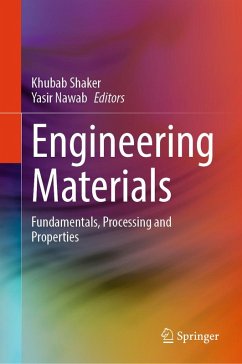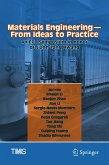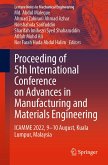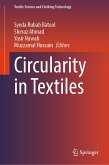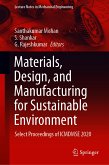The book is intended to cover the different types of materials used in modern engineering applications. The book begins with an introductory chapter on the basic concepts of materials science. Subsequently, it includes a detailed overview of metals, alloys, ceramics, polymers, composites, textiles, 2D/nanomaterials, and biomaterials, exploring their structure and properties, processing techniques, and characterization methods. Last chapter of the book is dedicated on materials sustainability including life cycle assessment and its role in sustainable materials design. The book examines the environmental impact of different materials and processing techniques and explores strategies for minimizing this impact. Overall, this book will prove to be an excellent resource for undergraduate students and professionals working in domain of materials and allied areas. To the best of our knowledge, no other book available in the market comprehensively explores the engineering materials to such a breadth.
Dieser Download kann aus rechtlichen Gründen nur mit Rechnungsadresse in A, B, BG, CY, CZ, D, DK, EW, E, FIN, F, GR, HR, H, IRL, I, LT, L, LR, M, NL, PL, P, R, S, SLO, SK ausgeliefert werden.

